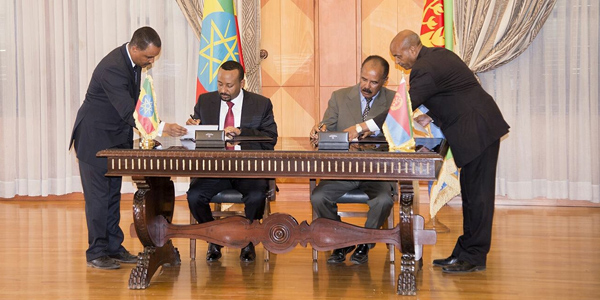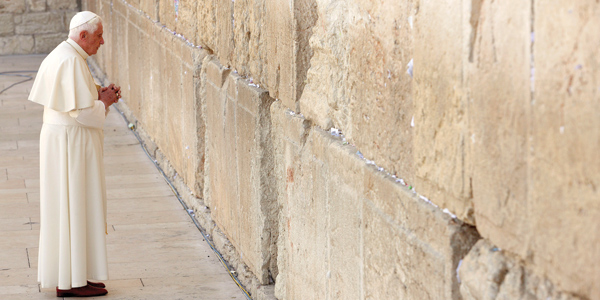A new text by Pope Emeritus Benedict XVI on Christian-Jewish relations has been published in the current issue of Communio, a bi-monthly theological journal co-founded by the then Joseph Ratzinger in 1972.
In a preface to the article, Cardinal Kurt Koch says the text had been passed on to him as a private reflection.
Pope Benedict appointed Koch President of the Pontifical Council for Promoting Christian Unity and of the Pontifical Commission for Religious Relations with the Jews in 2010.
Entitled “Grace and Vocation Without Remorse” (“Gnade und Berufung ohne Reue”) dated 26 October 2017 and signed “Joseph Ratzinger – Benedikt XVI”, the text was not initially intended for publication, Koch said – but he had persuaded Benedict to have it published in Communio.
The text was an “important response to the 2015 invitation by the Holy See’s Commission for Religious Relations with the Jews to in-depth dialogue between the Church and Judaism”, Koch explained. That dialogue had always been “close to Ratzinger’s heart”. The year 2015 was the 50th anniversary of the publication of the Second Vatican Council document Nostra Aetate, which opened a new era in relations between the Church and Judaism.
That the Pope Emeritus, who, when he resigned, had said he wanted to remain silent from now on, had decided to comment on Christian-Jewish relations was “remarkable” for several reasons, Communio editor Jan-Heiner Tück told Kathpress news agency on 6 July. “It is remarkable with regard to Pope Francis who now theologically has a ‘second voice’ at his side, as the Pope has also spoken out on Christian-Jewish relations in [his 2013 apostolic exhortation] Evangelii Gaudium and elsewhere,” Tück observed.
Calling Benedict’s text “explosive food for thought”, Tück said it was “remarkable” that the Pope Emeritus thought that Israel had been founded “politically” and was a consequence of the Shoah.
In the interview with Kathpress, Tück said that, for Benedict, the current rejection of the so-called substitution or replacement theory – which held that the Church replaced Israel’s salvific role – needs more consideration.
Theological tradition had not spoken of “substitution”, Benedict writes. According to Tück, he suggests going into elements like the temple cult, ritual, legal and moral regulations but also the issue of the Messiah and the concept of the Promised Land, one by one.
In this way, Tück says, Benedict opens up the possibility of theological criticism which is distinct from so-called “substitution”.
Benedict also comments on the “never-revoked covenant” – an expression Pope John Paul II first used in 1980. “Revoke” is not a Biblical word, he points out, and the Bible does not use the word “covenant” in the singular but often in the plural. The expression of the “never-revoked covenant” had been helpful, but in the long run the language of the Bible itself must be chosen, which speaks of God’s fidelity to His promises.
“The truly controversial question” between Jews and Christians is of the Messiah, Benedict says, according to Tück. Jewish expectation of the Messiah was based on a political understanding of a bringer of peace. The Christian point of view, he said, quoting Benedict, was that Jesus “did not directly want to bring a new world of peace ... but to show God to humanity including the heathens”.
Tück said that in Benedict’s view, the foundation of Israel as a state was political and the consequence of the Shoah – so it was a sign of God’s fidelity to His people, even if this could not be directly legitimised in Scripture.
Rabbi Walter Homolka, rector of Potsdam’s Abraham Geiger College, said the Pope Emeritus was encouraging anti-Semitism.
Benedict’s view was that “the Jews are the People of God but truth lies in Christianity”, he said. “To describe Judaism in this way helps to promote a new anti-Semitism on a Christian basis.”



 Loading ...
Loading ...